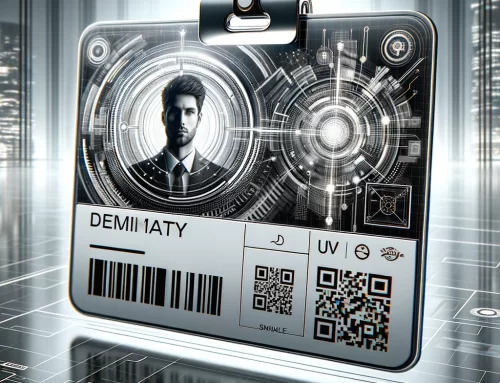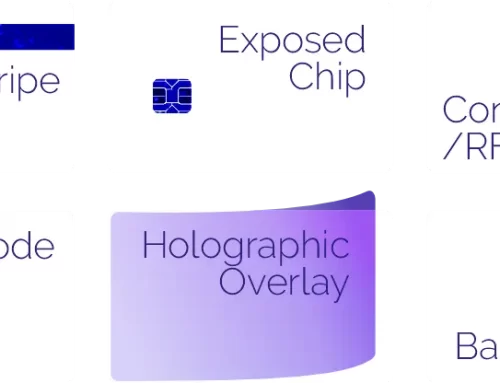 InstantCard has promoted the benefits of centralizing the issuance of photo ID cards for many years, generating numerous advantages for its clients that have multiple locations. Our largest customers, that have hundreds of thousands of employees and hundreds of sites across the US and Canada, benefit every day from the central issuance system: higher security, increased conformance to corporate policies, and significant cost reduction. However, corporate clients often wonder whether central issuance is an appropriate choice for them. We therefore assembled this guide to lay out the pros and cons of central issuance.
InstantCard has promoted the benefits of centralizing the issuance of photo ID cards for many years, generating numerous advantages for its clients that have multiple locations. Our largest customers, that have hundreds of thousands of employees and hundreds of sites across the US and Canada, benefit every day from the central issuance system: higher security, increased conformance to corporate policies, and significant cost reduction. However, corporate clients often wonder whether central issuance is an appropriate choice for them. We therefore assembled this guide to lay out the pros and cons of central issuance.
Advantages of Central Issuance
- Enhanced Security: Central issuance allows companies to maintain better control over the issuance process, ensuring that only authorized individuals receive ID cards. This helps in preventing unauthorized access to company premises and sensitive information, reducing the risk of security breaches.
- Standardization: Central issuance enables companies to establish a standardized process for ID card production, ensuring consistent design, format, and security features. This makes it easier to identify genuine ID cards, reducing the possibility of forgery or counterfeiting.
- Efficient Management: With central issuance, companies can streamline the ID card management process. It enables centralized record-keeping and tracking of issued cards, making it easier to manage cardholder information, update credentials, and track card usage. This saves time and effort for administrative staff and reduces the chances of errors or duplications.
- Cost Savings: By centralizing the ID card production and issuance, companies can benefit from economies of scale. Bulk printing of cards and centralized procurement of supplies can result in cost savings compared to individual card issuance. Additionally, centralized management reduces the need for additional staff or resources at multiple locations.
Disadvantages of Central Issuance
- Initial Setup Costs: Implementing a centralized ID card issuance system requires an initial investment in infrastructure, technology, and personnel training. The cost of setting up card printing equipment, establishing secure facilities, and implementing software solutions can be substantial, particularly for large companies. Of course, outsourcing central issuance to a specialized online service provide like InstantCard entails no setup costs whatsoever.
- Dependency on Central System: Companies relying on a central issuance system face the risk of disruption if the central system experiences technical issues or downtime. If the central system fails, employees may be unable to obtain or replace ID cards promptly, potentially causing operational disruptions and security concerns. Again, the use of a service which has 99.999% guaranteed uptime, such as InstantCard, can render this disadvantage highly unlikely.
- Logistics and Turnaround Time: Central issuance introduces logistical challenges, especially for geographically dispersed companies. Employees may need to wait for their ID cards to be produced and shipped from the central location, resulting in longer turnaround times compared to on-site or decentralized issuance. This can be inconvenient for new hires or employees who require immediate access. InstantCard’s guaranteed same-day service does, however, substantially mitigate this disadvantage.
- Lack of Flexibility: Centralized systems may not cater well to individual customization or unique requirements of different departments or subsidiaries within a large company. If specific teams or locations need distinct features or functionalities on their ID cards, central issuance may limit customization options and flexibility.
- Privacy and Data Protection: Centralized ID card systems involve the collection and storage of personal information and biometric data. This raises privacy concerns, as the company needs to ensure robust data protection measures are in place to safeguard employee information from unauthorized access or breaches. This is one of the reasons that InstantCard has obtained SOC2 certification, so as to re-assure its corporate clients that their personnel data (PII – Personally Identifiable Information) is fully protected.
Each business needs to carefully assess its specific needs, resources, and risk profiles before deciding on the implementation of a central issuance system for ID cards. However, as outlined above, in nearly all cases for a multi-site organization, central issuance will come out ahead.
As a validation of this affirmation, the State of Maryland, where InstantCard is located, has now become the 30th state to adopt central issuance of drivers licenses and government ID cards. The majority of states now realize that the enhancements to security, and operational efficiencies, that are gained through a central issuance service outweigh the benefits of on-site issuance. Even large DMV (Department of Motor Vehicles) organizations, with significant staffs to maintain ID card printers in each of the county offices, are hard-pressed to justify the benefits of “instant on-site” issuance. These states now mail the ID card, after proper processing, to citizens.
So, if you work for a corporation with multiple locations needing ID cards, the question to ask yourself is this: If even deep-pocketed government agencies, steeped in the business of printing ID cards at local DMV offices, are moving toward a central issuance service, shouldn’t you be considering that option as well?
Contact InstantCard to discuss how a central photo ID card issuance service may provide be able to better meet your ID card production requirements.



